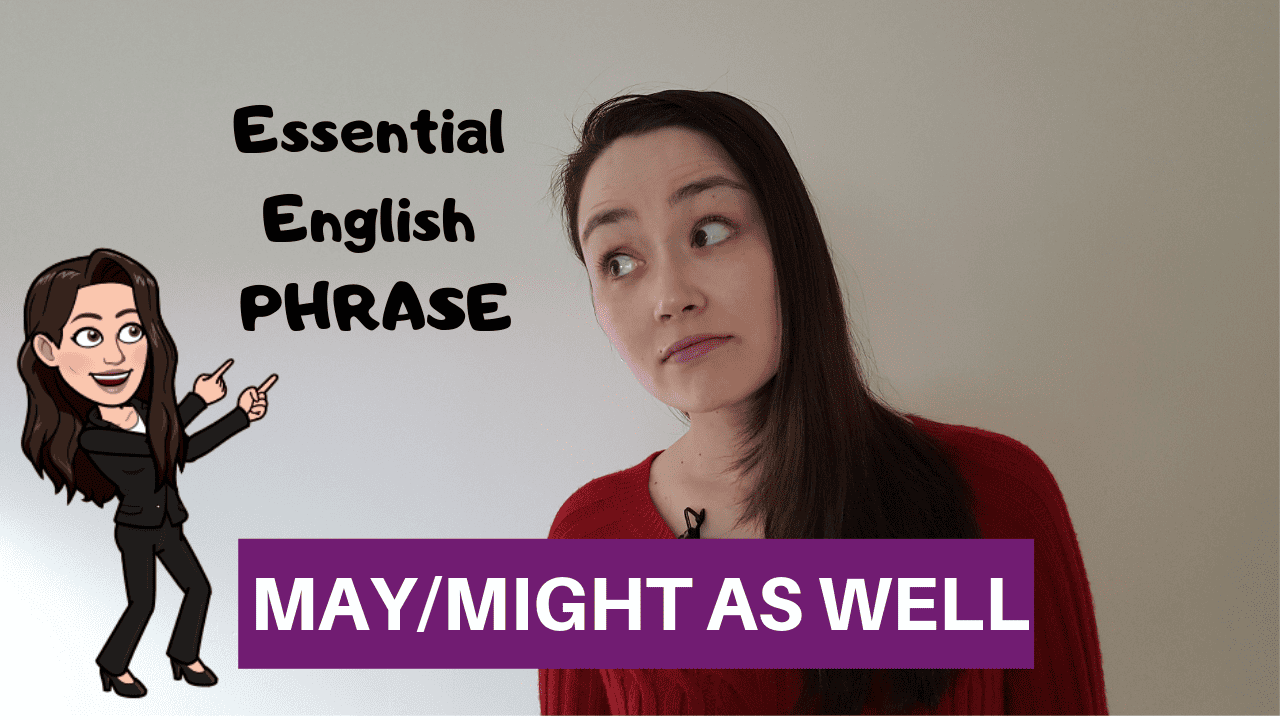Hi everyone! Today’s essential everyday phrase is a nice quick lesson focusing on may/might as well. I’ve also included my YouTube video lesson on the topic for you visual learners out there. Let’s get started!
MAY/MIGHT AS WELL = there is nothing better to do
We use may/might as well when there is nothing better to do. It is used when we decide to do something, because we cannot think of a reason not to.
If you have trouble viewing the video, please click here.
Examples:
Oh no, we missed the last bus. We may/might as well walk.
There isn’t a reason not to. There isn’t a better option.
I really need to get to the bank, but it closes in 30 minutes. I may/might as well stay home. It’s a waste of time to go out now.
There isn’t a good reason not to stay home. There isn’t a better option.
I can’t believe I ate eight doughnuts. I may/might as well finish the last two.
There isn’t a reason not to. There isn’t a better option.
Amy and Tim said that they were going to be an hour late. Apparently the traffic is horrendous.
B: Oh wow, well we may/might as well start eating. I don’t think they expect us to wait for them.
There isn’t a reason not to. There isn’t a better option.
Often times may/might as well is used when we are reluctant to do something.
I can’t believe my internet isn’t working! There’s nothing to do here. I may/might as well go to sleep. Hopefully I can get this fixed in the morning.
There isn’t a reason not to. There isn’t a better option.
Another essential phrase: TAKE YOUR PICK







Dear Arnel! Thank you very much for wonderful lessons! You are so charming and beautiful and your lessons are very interesting and easy to understand. Explain please ‘lone’ and ‘alone’
Hi Kateryna. Thank you very much for your nice message! I’m glad you find my lessons interesting!
Of course…
Both words mean the same thing. They are used differently grammatically.
‘lone’ is used before a noun: A lone wolf stood by the riverbank. / The streets were quiet except for the sound of a lone saxophone player.
‘alone’ is used at the end of a clause or after a noun: I live alone / Is there anything you like doing alone? / You alone can fix this problem.
‘lone’ is actually not very common. It’s mainly used in literature.
Arnel